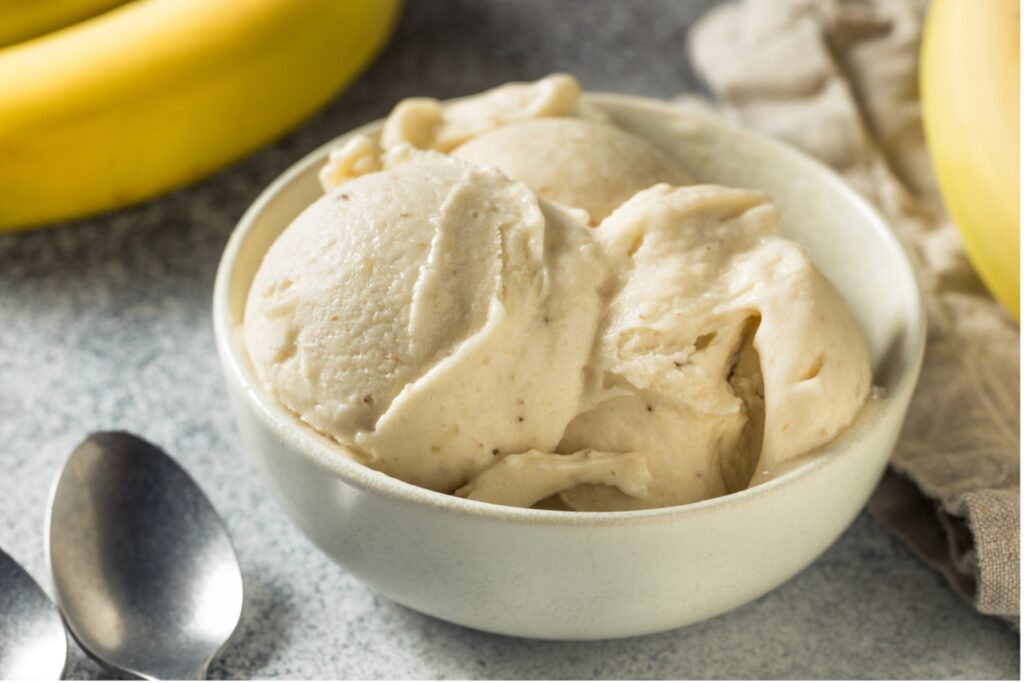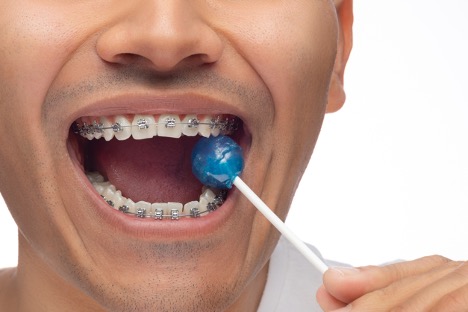Sugar – the sweet temptation that we all find almost impossible to resist. We crave it in our morning coffee, reach for it in snacks during the day, and indulge in it with our desserts. But have you ever stopped to consider the impact of sugar on orthodontic treatment and your dental health? Brace yourself because the bittersweet truth is about to be revealed.
This article will explain how sugar affects teeth, gums, and oral health. We will also cover how sugar can interfere with orthodontic treatment, potentially prolonging your time wearing braces or aligners.
But don’t worry. We will also provide tips to minimize the damage and keep your pearly whites in perfect condition. So put down that sugary treat for a few minutes and join us as we uncover the bitter truth behind the sweet allure of sugar. Your smile will thank you later.
The Effects of Sugar on Dental Health
Sugar plays a significant role in tooth decay, also known as dental caries. When we consume sugary foods and drinks, the bacteria in our mouths feed on the sugars and produce acids as a byproduct. These acids attack the tooth enamel, which is the protective outer layer of our teeth, leading to demineralization and the formation of cavities.
Excessive sugar consumption not only provides a feast for harmful bacteria but also reduces the natural defense mechanisms of our saliva. Saliva helps neutralize acids and wash away food particles. But, when sugar intake is high, the saliva’s ability to combat acid erosion is compromised, creating a favorable environment for bacteria growth and tooth decay.
Reducing sugar intake and practicing good oral hygiene are essential to preventing tooth decay. Regular brushing, flossing, and dental checkups are also vital in maintaining healthy teeth and preventing the damaging effects of sugar.
The Effects of Sugar on Orthodontic Treatment
Orthodontic treatment, such as braces or aligners, aims to correct misaligned teeth and jaw irregularities. However, sugar can interfere with the progress of orthodontic treatment, potentially prolonging the time spent wearing braces or aligners.
After you eat sugar, it lingers on and around the teeth, creating a breeding ground for bacteria. For individuals undergoing orthodontic treatment, this can pose additional challenges. Braces and aligners create small spaces where food particles and plaque can accumulate, increasing the risk of tooth decay and gum disease.
Additionally, consuming sticky and chewy sugary foods can damage orthodontic appliances, leading to costly repairs and delays in treatment. It’s crucial for individuals with braces or aligners to be mindful of their sugar intake and follow their orthodontist’s recommendations for proper care and maintenance.
Watch for Hidden Sources of Sugar
Sugar is present in obvious sources like candies, sodas, and desserts. But also, you can find sugar in everyday foods and drinks. Knowing these hidden sources can help you make informed choices and reduce the impact of sugar on your orthodontic treatment.
Processed foods, such as breakfast cereals, granola bars, and flavored yogurts, often contain high amounts of added sugars. Even seemingly healthy options like fruit juices and smoothies can be loaded with sugar, as the juicing process removes the fiber from fruits, leaving behind concentrated sugars. Condiments like ketchup, barbecue sauce, and salad dressings can contain surprising added sugars.
Reading food labels and opting for whole, unprocessed foods can help you identify and avoid hidden sugars. Fresh fruits, vegetables, lean proteins, and whole grains can provide essential nutrients without excessive sugar content
Keep Proper Oral Hygiene During Your Orthodontic Treatment
Reducing sugar consumption is crucial for maintaining good dental health during orthodontic treatment. Here are some practical tips to help you curb your sugar cravings and protect your teeth and orthodontic appliances:
- Read labels: Pay attention to food labels and ingredient lists to identify hidden sugars. Look for ingredients like sucrose, glucose, fructose, corn syrup, and dextrose.
- Choose water: Instead of drinking sugary beverages like soda, fruit juices, and energy drinks, opt for water. Water not only hydrates but also helps rinse away food particles and acids.
- Snack smart: Instead of reaching for sugary snacks, choose nutritious alternatives like fresh fruits, vegetables, nuts, or yogurt without added sugars.
- Practice moderation: If you can’t resist a sugary treat, enjoy it in moderation and as part of a balanced meal. Eating sweets with a meal can help minimize the impact on your teeth.
- Brush and floss: Brush your teeth at least twice daily with fluoride toothpaste and floss daily to remove plaque and prevent tooth decay. Flossing is more challenging with braces, but cleaning between the teeth and along the gumline is crucial. Special orthodontic floss or floss threaders can make this task easier. An antimicrobial mouthwash can also help reduce bacteria and freshen your breath.
- Regular dental checkups: Regular dental checkups are essential during orthodontic treatment. Your dentist will monitor your oral health, perform professional cleanings, and address any concerns or issues that may arise.
By implementing these tips and making conscious choices, you can significantly reduce sugar intake and improve dental health.
What About Sugar Alternatives?
Many people turn to sugar alternatives or artificial sweeteners to satisfy their sweet tooth without the calories of sugar. While these alternatives may seem healthier, their impact on dental health is still questioned. Sugar alternatives like xylitol, erythritol, and stevia are considered tooth-friendly options. They do not contribute to tooth decay and are often found in sugar-free gum, mints, and oral care products. However, it’s important to consume these alternatives in moderation and maintain good oral hygiene practices.
Artificial sweeteners like aspartame and sucralose are commonly used in diet sodas and sugar-free desserts. While they do not directly cause tooth decay, they can still contribute to an acidic environment in the mouth, potentially leading to enamel erosion and oral health issues.
We suggest you weigh the pros and cons of sugar alternatives and make informed choices based on personal preferences and dental health goals. Ask Dr. Erickson if you have any questions. He can provide valuable guidance during your orthodontic treatment.
Foods and Drinks That Are Safe for Dental Health and Orthodontic Treatment

You might be down in the mouth after realizing sugar’s damage to your teeth, especially while wearing braces. But don’t fret. You can eat many foods while wearing braces, and we will provide some ideas for sweets, too!
- Fruits and vegetables: Fresh fruits and vegetables are nutritious and help stimulate saliva production, which aids in maintaining a healthy oral environment.
- Calcium-rich foods: Dairy products like milk, cheese, and yogurt are excellent sources of calcium, which is essential for strong teeth and bones.
- Lean proteins: Incorporate lean proteins like chicken, fish, and tofu into your diet to support oral health and overall well-being.
- Whole grains: Choose whole grain options like whole wheat bread, brown rice, and quinoa, which provide essential nutrients and are less likely to stick to your teeth.
Ways to Satisfy Your Sweet Tooth without Sugar!

There are many mouth-watering recipes for desserts you can make without adding sugar. Here are a few ideas to get you started:
Frozen Banana Ice Cream from The Kitchen
Chocolate Hazelnut Nice Cream from Dr. Fuhrman
Oat Bars & Cookies from Healthy Little Foodies
Frozen Fruit Kabobs from Super Healthy Kids
Best Chocolate Fudge from All Around the Table
Simple Strawberry Smoothie from Cookie and Kate
Conclusion: Take Control of Your Sugar Intake for a Healthier Smile
Nutrition plays a vital role in maintaining good dental health and preventing the impact of sugar on your orthodontic treatment. A well-balanced diet provides essential vitamins and minerals that support healthy teeth and gums, promote healing, and aid in developing the jaw and facial bones properly.
Start your New Year out by avoiding excessive snacking of sugary foods and drinks to prevent tooth decay and gum disease during your orthodontic treatment. Instead, eat nutrient-dense meals and snacks that promote overall health and create a beautiful smile. But remember to keep it fun by trying some of the fantastic sugar-free dessert suggestions above. And remember, the goal is an amazing, healthy smile!
Your Friendly Orthodontic Team




